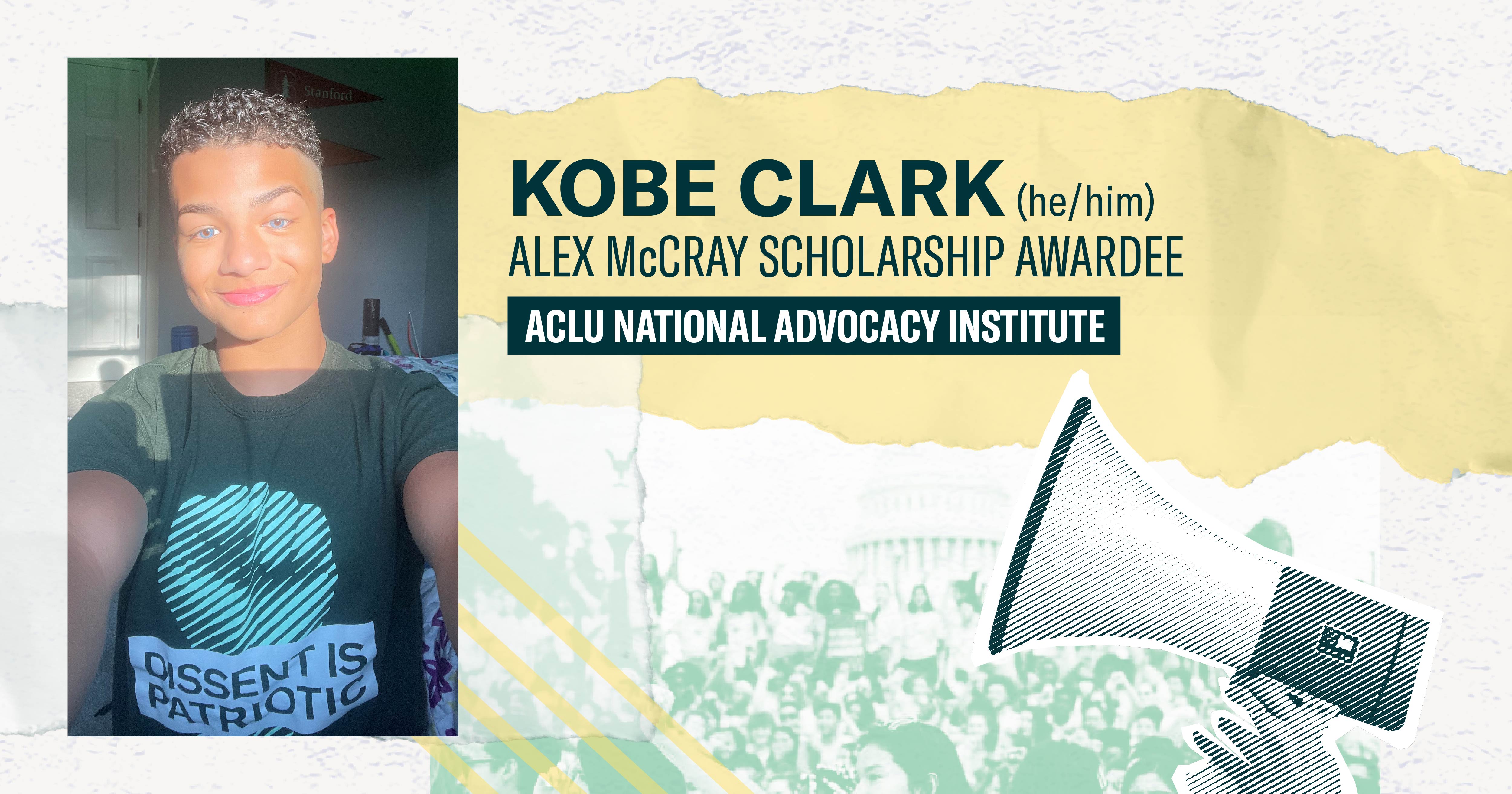Kobe Clark (he/him), a high school student and activist from Illinois, participated in the 2021 National ACLU Advocacy Institute as this year’s Alex McCray Scholarship recipient.
As I look back at the attending the ACLU Advocacy Institute, only positives come to mind. The experience was marked by many an introduction to many new thoughts and ideas and insights from well-known activists from across the country. The entire Institute, from engaging with incredible students in my home room, to hearing directly from guest speakers with millions of followers on social media, was both inclusive and a safe space for all participants.
Among the programs that had the most profound impact on me were:
- A conversation with Leanne Gan who is a spectacular graphic designer. She taught me a lot of things about graphic designing, and how Photoshopping items into a collage can powerfully impact an audience.
- Listening to Trevor Wilkinson discuss his experience with the outdated laws still in effect in our schools across America. Trevor is very passionate about changing school rules especially when they limit one’s capacity for self-expression. Trevor reminds us that school officials often enforce rules that conflict with the school’s actual curriculum. I recall being told that “you have more freedom on the street, rather than in school.” I can relate to that reality from when I was trying to confront racism and ignorance in my school. This needs to be changed.
- A home room exercise that involved the controversial topic of what can is permissible for a student’s Zoom background in an academic setting. One student in our case study used a Black Lives Matter sign as their background, while in retaliation, another student posted a Blue Lives Matter flag. Students in home rooms were assigned different positions for this simulation. My partner and I were assigned to represent the Black Student Union in the dispute, and making recommendations for how the school should respond to this situation. The exercise made clear to me the many challenges confronting an activist like me in a real life situations. But, more important, it built my skills about how to exercise my rights (including those I have and do not have as a student), as well as how everyone – including people like me – could make change.
Mainly, I learned that one need to have a “plan” to address any particular situation. While it’s great to protest, march, hold up signs, and stand for what you believe in, there’s more to activism with that. For me I’m very involved in what happens at my high school. So, my plan could include going to school council meetings, talking to teachers, getting a sponsor, starting a club, and communicating to others about what we want to happen in school.
The Institute provided skills and credentials not only how to make change, but to make sustaining change for generations. As an activist I’ve learned to also pace myself. Making change can be exhausting, and it’s usually not an overnight fix. So to learn to be patient and work with what works is key to success.
I am proud to say that the Institute gave me an opportunity to be part of an ACLU community – one that I intend to continue to participate in going forward.
Date
Tuesday, August 31, 2021 - 9:15amFeatured image

